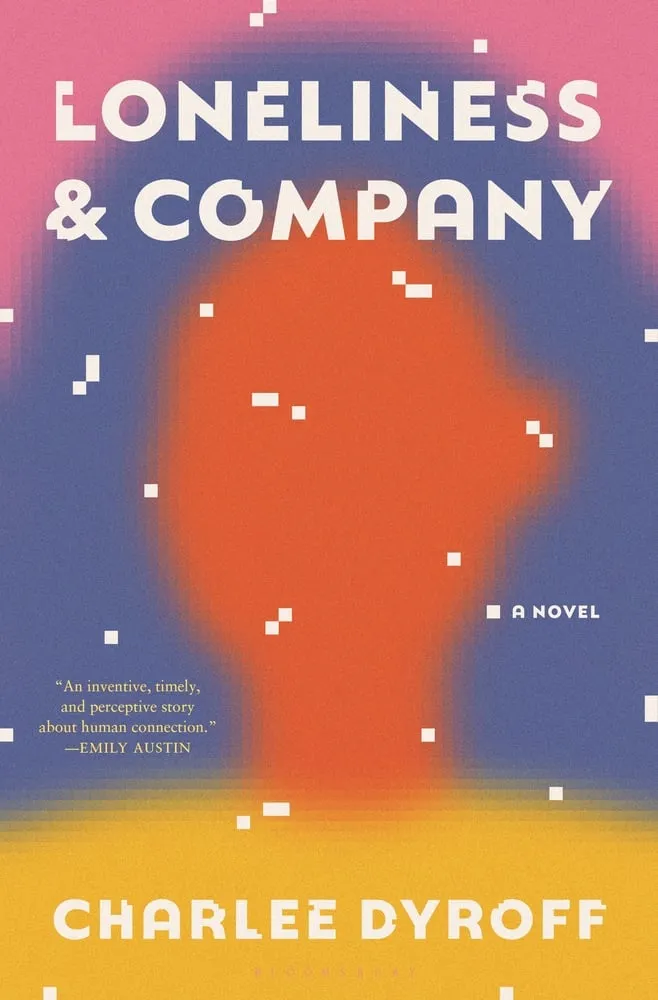Coming of Age meets Black Mirror

Loneliness & Company
By Charlee Dyroff
Links:
Reading Time
- HowLongToRead: 4 Hours and 48 Minutes at 300 WPM
- Kobo Reading Time: 6-7 hours
- My Reading Time: 6.7 Hours
Genres
- Fiction
- Sci-Fi
- Dystopian
BISAC Categories
- Coming of Age
- Women
- Dystopian
- Friendship
Tl;dr
Loneliness & Company is the debut novel by Charlee Dyroff, and wow, what a way to start! This is the first fiction book that’s completely pulled me in since 2012 when I read Amped by Daniel H. Wilson.
I picked this book up on a whim—didn’t even read the description, just saw mentions of AI and a dystopian government. I expected something heavy on the science fiction, but what I got was something much more nuanced—and I don’t regret it one bit.
If you’re into coming-of-age stories with a sprinkle of science fiction, this one’s an easy recommendation. And even if sci-fi isn’t usually your thing, don’t worry: the futuristic elements are subtle and never overpower the heart of the story. At its core, this is about a protagonist figuring out what it means to be human—abstractly, not in a “robot trying to feel feelings” kind of way.
Rating: ⭐⭐⭐⭐ out of 5, I recommend.
Possible Spoilers Ahead
I have recently been trying to get more serious about reading the backlog of books I have bought over the last few years. I’ve had the bad tendency to buy a book based on a recommendation, good description, or nice cover but not get past the first chapter.
Routine is the death of awareness.
(Chapter 18)
During the summer of 2024, I picked up Loneliness & Company, Charlee Dyroff’s debut novel. I can’t remember if I got it from a newsletter recommendation or if it caught my eye on the front page of Bookshop’s website. Either way, all I knew was it mentioned AI and a dystopian government. I assumed it’d be something heavier, like Dune or Daniel H. Wilson’s Amped (my gateway into science fiction literature).
No, I don’t miss Masha. If anything, I miss who I was at the Program. I miss knowing exactly what to do, where to go.
(Chapter 4)
Instead, the world was much more grounded in our present reality. Dyroff’s world-building felt less like a leap into the future and more like a continuation of steps we are already taking. The society she created was easy to believe because you can see how today’s trends could spiral into it. Restaurants with actual waiters are considered inefficient and borderline quaint, while vending machine bartenders and food cooked by robots are the norm. Sound familiar? We’re already ordering Big Macs from kiosks and checking ourselves out at Walmart.
There’s a pulse here she hasn’t felt anywhere else. Maybe not as lively and new as the Midwest…
(Chapter 10)
At first, I thought Dyroff was turning the Midwest into some cultural and governmental epicenter, leaving New York City as a forgotten relic, like a “New World vs. Old World” scenario. But nope—by the end, it became clear the opposite was true. This book turned out to be a love letter to NYC, painting it as the eternal hub of culture and humanity (at least from a Western, USA-centric perspective) even as society slowly chips away at that humanity. Fun fact: Dyroff is not from the Midwest; she’s from Boulder, Colorado, and now lives in Brooklyn, so this tracks.
Is it possible to love a place? For that place to love you back? I stumbled upon a post recently theorizing that everyone is in an abusive relationship with New York. It beats people up, but they never want to leave.
(Chapter 18)
The story mainly follows Lee, our protagonist, though it occasionally dips into Janet’s perspective. The switch was easy to follow after the first time and added a lot of depth—things Lee couldn’t have known but we needed to. That said, Lee sometimes drove me nuts with her self-destructive decisions. Then I’d remind myself: frustration is the price of a well-written, fully fleshed-out character. Everything she did, even the dumb stuff, made sense for someone who’s lonely and desperately trying (and failing) to connect in a healthy way.
I was here. I think of those words scrawled around the city. Maybe I get it. Maybe they just wanted someone, anyone, to know they existed.
(Chapter 34)
Now, here’s where my ego got involved. I hate when creators act like they’re smarter than me (yes, I know it’s a me problem—but I like to blame M. Night Shyamalan). Early on, I thought I’d sniffed out a big plot twist involving the AI. Naturally, I spent the rest of the book feeling smug, piecing together every little hint. And then? Dyroff played me. She deliberately led me down that rabbit hole only to flip it on its head in the final chapters. There was no twist, which somehow made for a more satisfying twist. Well played, Dyroff.
Instead of chasing new ways of thinking, of being, I just fell in line. I became the very thing I wanted to escape. Jaded by routine. Suffocated by systems. Devoured by work and Screens, I, too, became isolated.
(Chapter 37)
I loved this book and highly recommend it. As I mentioned, it wasn’t the sci-fi extravaganza I expected, but the elements are there—think less Dune/Star Wars, more Black Mirror. The near-future setting keeps the sci-fi subtle, leaving room for the real focus: Lee’s journey and the bigger questions about what it means to be human and lonely.
Rating: ⭐⭐⭐⭐ out of 5, I recommend.